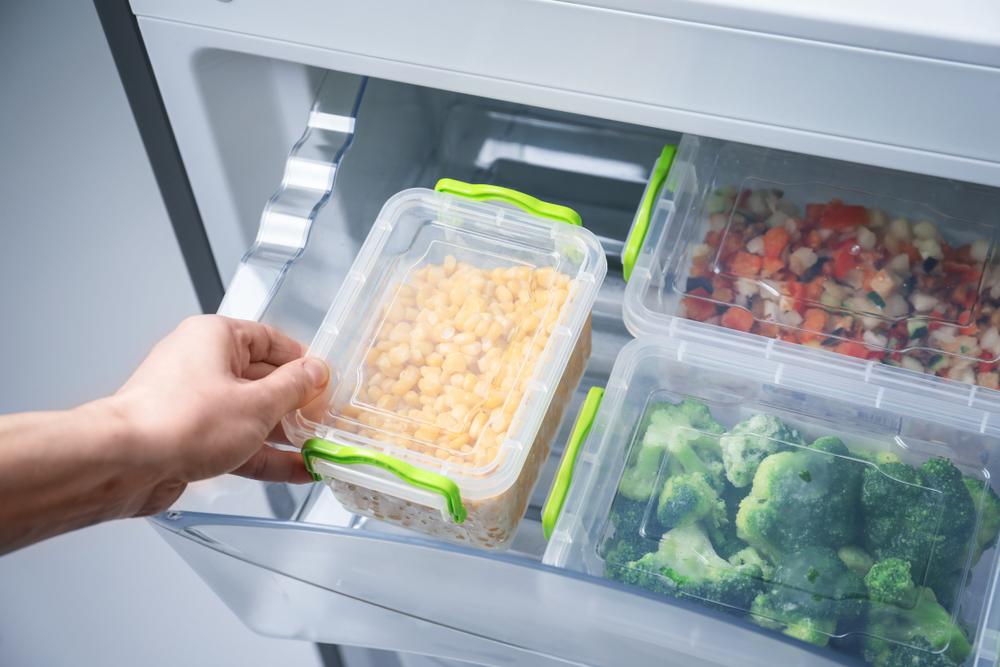Retire extra Refrigerator/Freezer
An extra refrigerator or freezer can cost you up to an extra $200 per year or more! The older it is, the higher the cost. Do you really need that extra fridge?
Your Impact
Action Steps & Tips
Introduction

It might seem like a money-saving strategy to use an old refrigerator or freezer for storing extra food. However, it can actually cost much more in electricity bills than it saves in food costs or convenience. It’s worth taking a minute to figure out your savings and what makes sense for your household.
Getting rid of that additional fridge or freezer can make more room in your home or garage and also reduces your energy use and environmental impact.
1 Figure out your potential savings
How much you can save from retiring your extra fridge depends on when your refrigerator was made.
-
Retiring older models built before 1993 can save up to $300 or more a year (depending on your electricity prices and your fridge model.)
-
If your refrigerator was manufactured from 1993 to 2000, savings are generally up to $100 or more per year.
-
If your fridge was built in 2001 or later, the savings are much smaller.
-
Savings are smaller for freezer only units.
Find the year your extra refrigerator or freezer was built and its size and find a closer estimate of your savings with the Energy Star Flip Your Fridge calculator.
2Clean out and consolidate your fridges
In many homes, an old refrigerator or freezer is used for just a few items or stores lots of leftovers. Sometimes it is used only for special occasions, such as holiday dinners or parties when you need a bit of extra space. Take a look at what is in both of your current fridges and consider whether you can rearrange and downsize to just one.
Clean and Consolidate. Start off by cleaning out both and see what’s left. Can it be consolidated into one? If one would work most of the time, except for holidays or parties, consider whether you could do some extra cleaning before an event to make enough room temporarily. Or get crafty and ask a few family or friends attending to bring a few of the items you need refrigerated ahead of time and make sure to distribute leftovers at the end of the event.
3Dispose and Recycle Responsibly
If you can make it work, retire that old refrigerator or freezer!
It is important to properly dispose of your old refrigerator or freezer. Refrigerators contain chemicals that can create severe environmental damage including ozone-depleting substances, climate pollutants, mercury, and PCBs. Some common substances found in refrigerants are 10,000 times more powerful climate pollutants than carbon dioxide. Federal law requires appliances with hazardous substances be properly disposed of or recycled.
Call your local waste hauler or recycling center. Ask for local options for safe disposal and arrange for a pickup or a drop-off at an authorized disposal center.

